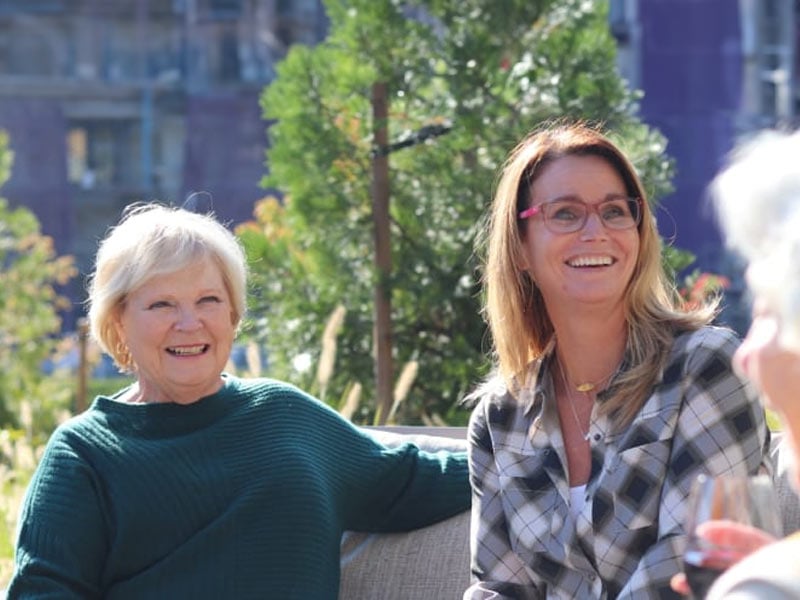Leaving a home is always bittersweet, especially for seniors who may be downsizing or leaving a family home that holds many memories. The actual move and selling of belongings, donating items that are no longer needed, dividing family treasures among adult children and grandchildren, can be physically and emotionally taxing.
While moving after retirement is both emotionally stressful and physically demanding, it can also be liberating. Keeping the mood positive and focusing on the benefits of living a simpler life, with less “stuff” and more free time to enjoy activities, helps keep things in perspective.
Realtor John Lubinsky, of The Lubinsky Team in Dublin, Ohio, says many of his clients know downsizing is for the best, but still have fears surrounding the experience. His advice to clients, over the years, comes down to ten key tips to overcome the fears of downsizing.
Ten Tips to Overcome the Fears of Downsizing:
1. Focus on the positives! Downsizing is a process by which you are reducing your current obligations and stress to begin enjoying a new chapter of life. Downsizing can mean less yard work, less home maintenance, more opportunities for new adventures and making new friends.
2. If you are worried that you will have to do too much work to your home to sell it, allow a real estate professional to guide you. Someone who regularly deals with home sales can give you great information on what is necessary and what things can be done to draw attention away from the less attractive elements of your home.
3. Talk to your financial institution or financial advisor to determine what is possible and what it will mean to move into retirement living. Have your real estate agent provide a seller net statement to see what your potential net return on your current home might be. You may be surprised by the equity you have.
4. Look around. Before you make a decision to downsize, visit some retirement communities and talk to the neighbors. Find out what they love about being there and what their experience has been like. They have, more than likely, been in your shoes.
5. Make a wish list that creates a perfect-world scenario of where you want to live. This will guide you and remind you why you’re making the move – whether it has to do with moving closer to family, the activities offered, or the area you’ve always wanted to live.
6. There are companies to help with the “things.” We tend to collect a lot of stuff when we live in one place for a long time. There are professionals to help you sort, donate, sell, and pack. They understand the emotional ties and will help you work through that.
7. The emotions you have for your home are often tied to the events that occurred there, such as the birth of a child, marriage, holidays. Get out those photos and frame them. Have them prepared to hang in the new place to take those memories with you.
8. Only take what you need. If you haven’t used something in over a year, the likelihood of you needing it is slim. Let someone else get some joy out of it.
9. Determine when the time in your current home is up. If the home is showing signs of disrepair, the yard is becoming overgrown, the floorplan is becoming tough to navigate, and your home feels more like a burden, it is probably time to consider downsizing.
10. Call a trusted Real Estate Agent. They will offer you great advice. Ask friends, who have already downsized, for references and let your family help when they offer. You don’t have to do this alone.
After you’ve made the decision to move and you’ve sold your home, consider hiring a professional to keep your project on track. In the end, experts agree that you shouldn’t feel pressured to make the move. “Ultimately it’s your move and your decision,” says Lubinsky. “It needs to be done on your time.”
Thankfully, communities like The Springs Living are full of people who’ve gone through a similar downsizing and are there to support you from day one. Being surrounded by friends who become like family, makes The Springs Living feel like home – without the chores, of course.












